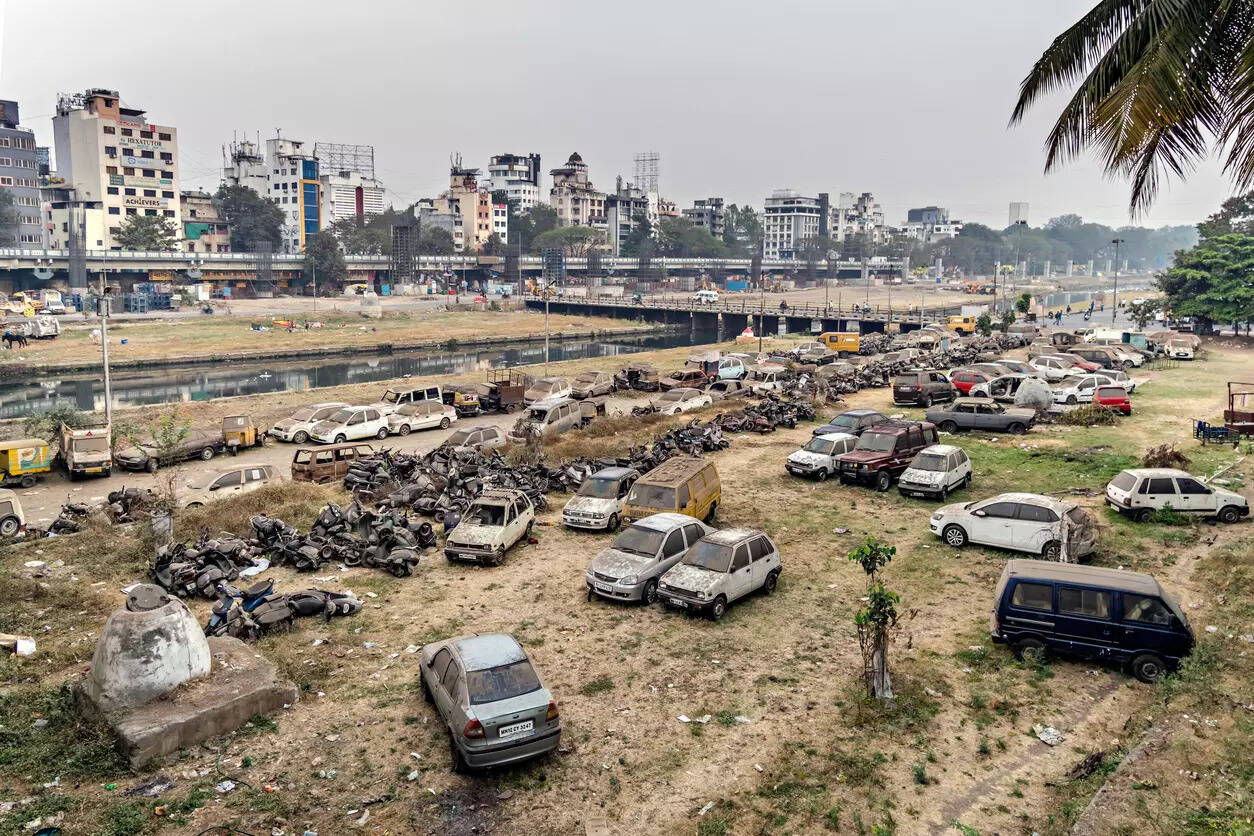
For months, RMD Bhuinya was in a quandary on whether to sell his old Maruti 800 in another state or scrap it.
One of his first vehicles, Bhuinya had no option but to let go of the car as it was older than 15 years and would not be allowed in Delhi-NCR.
The Sector 50 resident had heard about scrapping of old vehicles in Noida, but did not know how to go about it. Someone, then, told him it was as easy as sending a WhatsApp message.
“I clicked a few photos of my car and sent them to the scrapping centre in Sector 80. Someone called me back and quoted a price. I was surprised that it was beyond my expectation. After I agreed, they towed my car away,” says Bhuinya, who got INR 19,000 for his scrapped vehicle.
Easy though it may be, the formal channel of scrapping vehicles is yet to catch on. Noida, for example, estimated to have around 1.5 lakh old vehicles that need to be taken off the road. But only 18,000 – a little more than 10% – of these vehicles have been scrapped in the formal system so far.
There are two authorised vehicle scrapping centres in Noida. One of them is in Sector 80 and is run jointly by Maruti Suzuki and the Toyota Tsusho group. The other one is managed by Mahindra in Greater Noida.
In 2015, the National Green Tribunal ordered that “end-of-life” vehicles (ELVs) – petrol vehicles older than 15 years and diesel ones bought more than 10 years ago – be deregistered in Delhi-NCR. .
The Maruti Suzuki Toyotsu India scrap centre came up in 2021, with a capacity to recycle around 24,000 ELVs a year. But the response has been lukewarm – only about 3,000 vehicles have been scrapped in the past two years.
Officials explained vehicle owners need to follow a few simple steps to register their old vehicles for scrapping.
One option is to visit the website https://vscrap.parivahan.gov.in and fill a form. The nearest scrap centre then contacts the applicant and the process is initiated.
At the Sector 80 facility, however, the owner can either call on the toll-free number 1800-419-3530 or send a WhatsApp message on 8448223530. The scrapping centre will then contact the vehicle owner and quote a price. If the owner agrees, the vehicle is registered for scrapping. Once the vehicle is scrapped, the owner is issued a certificate.
The state government last week issued a set of directives specifying how ELVs should be evaluated at scrapping centres. A letter by transport commissioner L Venkateshwarlu stated that the reserve price of ELVs would be determined by 90% of the value of the ferrous or metal scrap component multiplied by the current market price of iron.
The standard formula to derive the percentage of ferrous scrap could be taken at 65% of the kerb weight — the total weight of a vehicle along with all standard equipment, fluids and fuel.
Until now, the scrap centres – even the authorised ones – manually calculated the worth of ELVs, which, at times, did not suit the customers.
But once a vehicle reaches a scrap centre, it is dismantled scientifically. “At station 1, the tyres and CNG kits are removed. The batteries and freon gas kits are dismantled at the next stage. The fuel tank and various other oils are drained out,” says Masaru Akaishi, the managing director of the scrapping centre.
Over the next 6-7 stages, the vehicle’s seats, steering, engine and radiator are removed, leaving a hollow structure made of metal. A bell press machine is used to turn the metal into blocks, which are then supplied to various companies. The other components are recycled and sold to private firms.
So, why are the number of vehicles being scrapped so low? “First, there is lack of awareness. Then, there is a full-fledged unorganised sector that runs parallelly,” says Akaishi.
Another official at the centre tells TOI that owners need to have their papers in order to get the vehicles scrapped at the registered centres, among them the original registration certificate.
“This is to ensure that the vehicle is legitimate, and the owner genuine. At times, people do not have the RCs of old vehicles, which is why they skip the scrapping process. Another issue is with lack of updated records. For instance, if a loan for a vehicle is cleared but it does not reflect on the transport department’s website, we can’t scrap it,” says Praveen Bansal, corporate manager at the centre.
UP currently has 10 vehicle scrapping centres – two each in Noida and Bulandshahr, and one in Ghaziabad, Agra, Amroha, Rampur, Baghpat and Muzaffarnagar.
S Velmurugan, chief scientist at the Central Road Research Institute (CRRI), says that owners should choose their scrapping centres with caution. “People must not go to unauthorised scrap facilities. Their vehicles can be used for criminal activities, no one knows,” he adds.
Arun Kumar, the regional transport officer, says his department is planning an awareness campaign about the scrapping centres.

